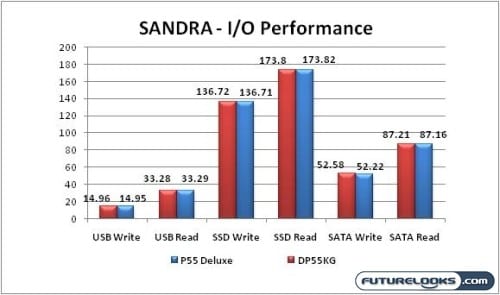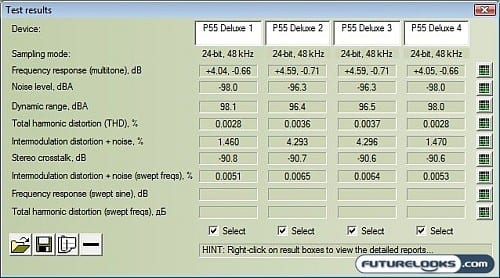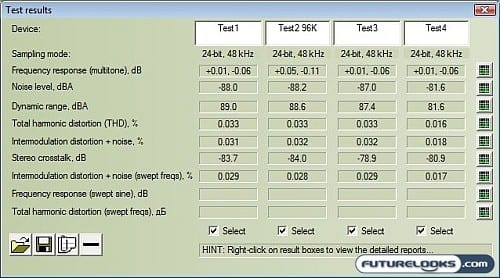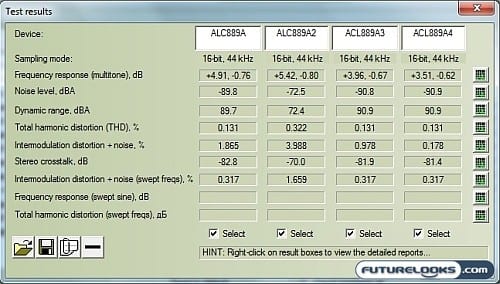Motherboard Operations

Both platforms are quite close in terms of connectivity. The eSATA PCIE card didn’t slow things down or speed them up. It would take a performance based controller card like those from Adaptec to get any extra performance in the transfer rates, if any.
RightMark Audio
Audio performance is naturally one half objective or personal preference and one half technical when testing. I find that using several different genres of music and video games can help answer the question of perception. You can better hear any limitations whether it be the audio’s depth, clarity, and noise with this range of material. RMAA is just a handy tool for comparing the Codecs hardware specs with other various audio Codecs.

Starting off with the ASRock P55-Deluxe, four different RMAA tests were completed to help give us a comparison by measuring its ALC890 Codec performance. These results are the standard to beat.

This second batch of tests came from the MSI P55-GD65 and its ALC889 Codec. Note the Frequency Response and Dynamic range (dBA) are much lower than the ASRock. More on this at the end.

Here you can see the ALC889A Codec in action found on the GIGABYTE GA-P55-UD5. Rather than bombard you with technical speak, that little “A” points to some internal differences that really make a difference. If you’re wondering, the second ALC889A2 column reveal what happens when there’s a little too much distortion in your audio test settings. The first, third, and fourth tests were ultimately the Codec’s sweet spot.
Objectively speaking, all three motherboards produce clear, audible audio. However, of the three, the ASRock produced the deepest, richest audio experience, but only ever so slightly over the UD5. When comparing recording quality, it was again marginally in favor of the ALC890 over the ALC889A Codec. This was a nice change of pace to say the least.
If nothing else, we hope that this gives vendors the clue to drop the ALC889 altogether because it just isn’t enough. We understand that integrated audio is a budget solution, but sometimes it’s worth spending a bit more for something that sounds more like HD and not just amplified stereo.
